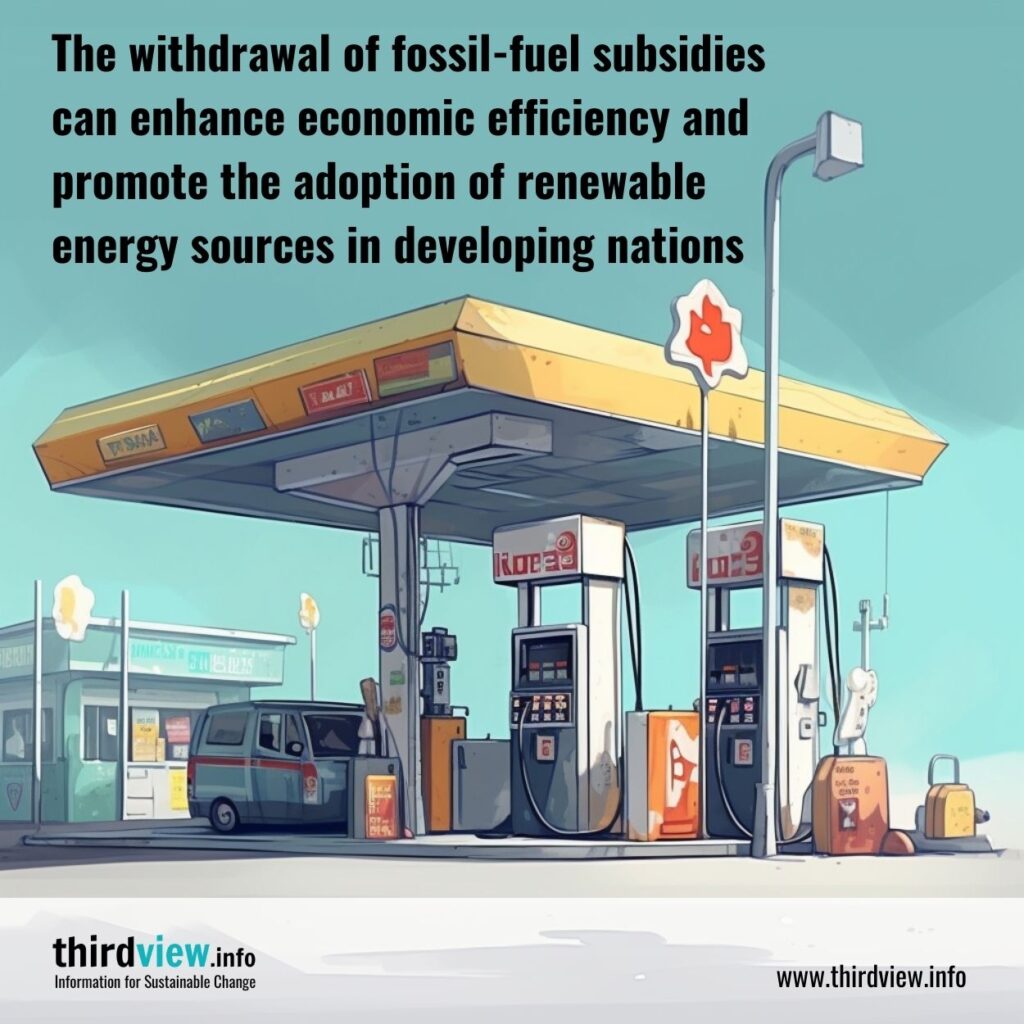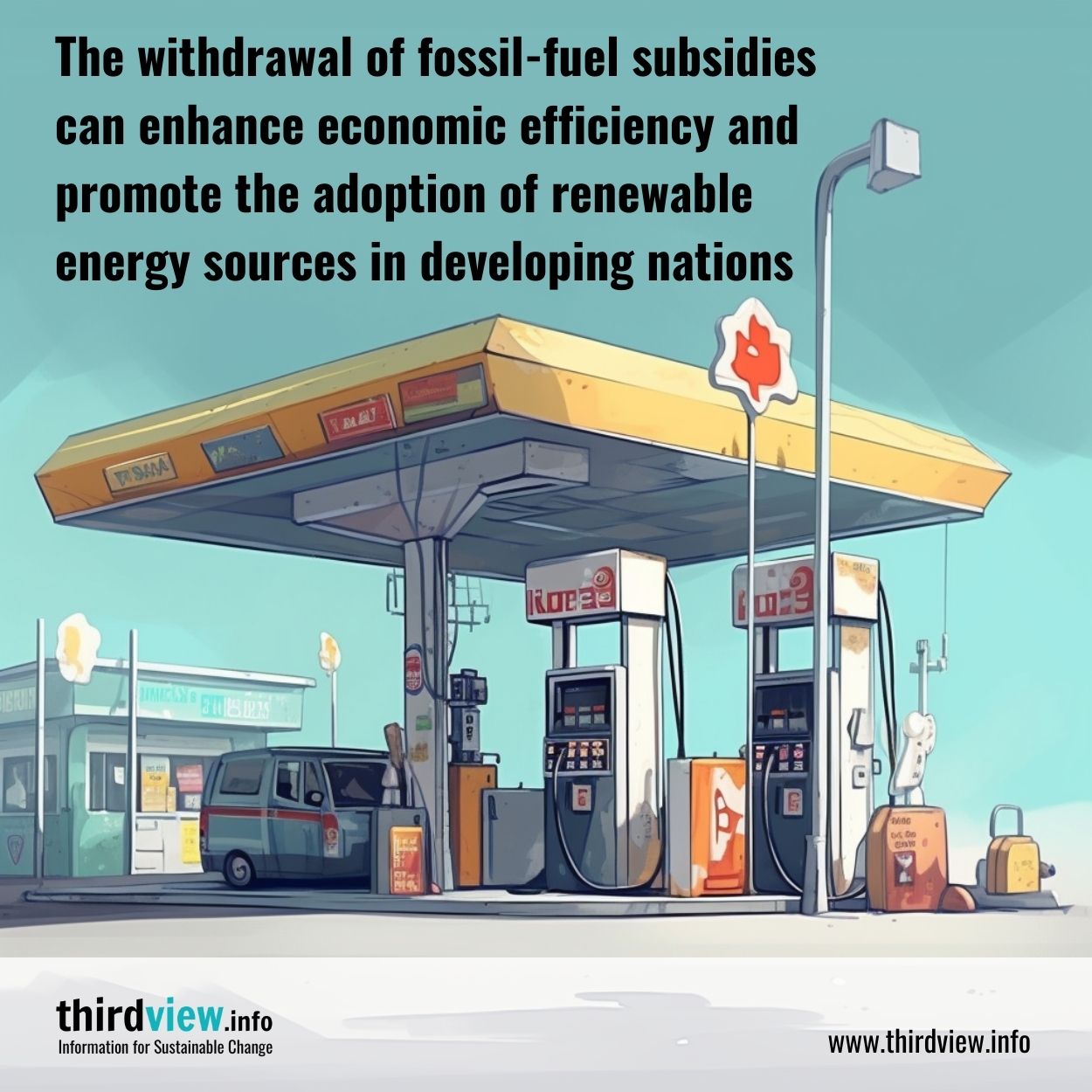A significant environmental dilemma in developing nations is the subsidization of fossil fuels. Developing nations are obligated to deal with a significant number of social, economic, and environmental difficulties. While United Nations International Agreements aim to mitigate the impact of climate change, supporting a transition to a green economy has proven to be quite difficult. Around the world, governments in developing nations subsidize fossil-fuel energy, providing a critical support mechanism for their economies. As the world shifts to cleaner energy sources, it raises a significant question: what impact can the withdrawal of fossil-fuel subsidies have on the economies of developing countries?
Fossil-fuel subsidies create adverse environmental impacts by promoting over-consumption, subsidizing non-renewable resources that cause harm and perpetuating dependence on non-renewable fuels. Governments justify subsidies based on economic considerations, providing low-priced oil and gas to ensure the prices remain constant, avoiding civil unrest. As prices for fossil fuels continue declining, ending fossil-fuel subsidies could enhance economic efficiency, as larger amounts of funding could be diverted to sustainable renewable energy. Renewable energy sources also have the added advantage of reducing greenhouse gas emissions, leading to a healthier environment.
The removal of subsidies will affect different sectors of the economy, funding for education, healthcare, infrastructural development, and poverty eradication programs. The majority of the population in developing countries is reliant on traditional biomass energy, and the removal of subsidies will almost certainly lead to an increase in energy costs. The poor in developing countries cannot sustainably access electric power, leading to poor access to healthcare and education which critically impacts the living standards. Incentives to reduce carbon emissions can provoke innovation, expanding renewable energy infrastructure investments, and reducing some of the economic consequences of the elimination of fossil-fuel subsidies.
In many developing nations, fossil-fuel subsidies are part of the norm, ingrained within the socio-political frameworks. They remain a source of strength and stability for suppliers of energy, but if the government chooses to remove the subsidies, then the economic benefits can be considerable. Information sharing and collaboration among nations that have implemented renewable energy in their developmental policies can act as an enabling factor for developing nations, providing a recipe for success that can propel the transition to renewable energy sources.
Governments need to collaborate with people to balance economic and ecological needs. Developing countries can adopt cleaner and more efficient energy-saving strategies and shift to cleaner fuels, reducing the pressure on government subsidies. They could introduce strategies like green tax, which could be used to create incentives for energy-efficient behaviour, including quality assurance mechanisms to guarantee energy savings for the end-users.
The real winners from the removal of fossil-fuel subsidies are the people, future generations and the environment. Transitioning to renewable energy sources can create more jobs, significantly reduce the environmental impact, and its long-term benefits could stabilize economic growth. However, developing countries require significant investment and technical assistance from developed countries to facilitate the move to cleaner energy sources. The private sector also plays a vital role in financing the manufacture, installation and maintenance of renewable infrastructure. Policymakers must take into account socio-economic factors and learn from other countries’ successes, understanding that transitioning to renewable energy requires a collaborative effort that includes the private sector and individuals. Ultimately, the decision to remove fossil-fuel subsidies lies with governments, knowing that it will transform their economies and secure a sustainable future.


